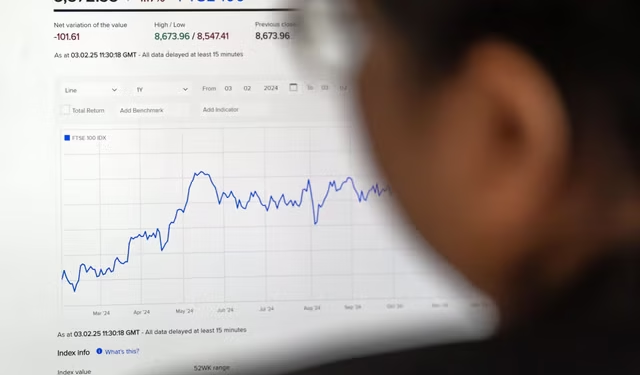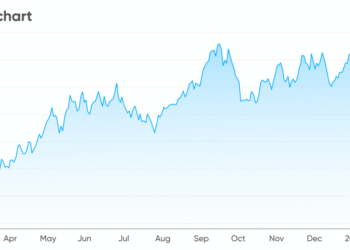Introduction
In a world where geopolitical tensions and defense budgets are on the rise, defense companies like BAE Systems have gained heightened attention from investors. BAE Systems plc, headquartered in the United Kingdom, is one of the world’s largest defense contractors. The BAE share price reflects not only the company’s performance but also broader trends in global defense, technology, and government spending.
This article explores the dynamics behind the BAE share price, including its historical performance, contributing market factors, recent developments, and future outlook. Whether you’re a retail investor, financial analyst, or simply a market enthusiast, understanding what drives the share price of BAE can offer valuable insights into both the defense sector and long-term investing.
Understanding BAE Systems – A Global Defense Leader
Company Overview
BAE Systems is a multinational defense, security, and aerospace company with operations across the globe, particularly in the UK, US, Saudi Arabia, and Australia. The company engages in various segments, including cyber intelligence, electronic systems, naval ships, land combat vehicles, and aerospace.
Founded in 1999 through the merger of British Aerospace and Marconi Electronic Systems, BAE has since grown into a cornerstone of the UK’s defense industry and a key supplier to NATO allies.
Financial Profile and Key Metrics
As of recent financial filings, BAE has demonstrated solid performance:
-
Revenue (2024): £25.3 billion
-
Operating Profit: £2.6 billion
-
Dividend Yield: Approximately 3.2%
-
Market Cap: Over £35 billion
These strong fundamentals underpin investor confidence and directly influence the BAE share price on the London Stock Exchange (LSE).
Historical Performance of the BAE Share Price
Long-Term Growth
Over the past two decades, the BAE share price has experienced steady growth. From a humble valuation in the early 2000s, the stock has appreciated significantly, particularly during periods of increased defense spending and geopolitical instability.
For example:
-
During the Iraq War (2003–2011), BAE saw a noticeable uptick in contracts and, subsequently, its stock price.
-
The period between 2015 and 2019 also brought gains, buoyed by increasing NATO expenditures and modern warfare contracts.
Pandemic Resilience and Recovery
Unlike many commercial aerospace companies, BAE remained relatively insulated from the full brunt of the COVID-19 pandemic. Defense contracts tend to be long-term and less susceptible to short-term economic shocks. This stability helped the BAE share price remain resilient, and it bounced back faster than many peer stocks post-2020.
Factors Influencing the BAE Share Price
Global Defense Budgets
One of the most direct drivers of BAE’s financial success and share price is government defense spending. Countries like the United States, United Kingdom, and members of the EU regularly allocate billions towards military modernization—many of which directly involve BAE.
For instance, in 2023, the UK pledged a £5 billion increase in defense spending, part of which was allocated toward the development of next-generation submarines and air defense systems—contracts that BAE is heavily involved in.
Geopolitical Tensions
Rising tensions in Eastern Europe, the South China Sea, and the Middle East have created an environment where defense contractors are seen as crucial players. The Russia-Ukraine war, in particular, led to rapid rearmament in Europe. This surge in demand for arms and equipment has positively affected the BAE share price due to increased order backlogs.
Innovation and Technological Advancement
BAE Systems is not just a defense manufacturer; it’s a tech innovator. Its investments in artificial intelligence, autonomous systems, and cyber warfare tools have made it a key player in future warfare technology. These high-margin sectors are increasingly relevant and have contributed to optimistic forecasts from analysts—fueling the upward momentum of its share price.
Recent Developments Impacting the BAE Share Price
Acquisition Activity
In 2023, BAE Systems completed the acquisition of Ball Aerospace, a major U.S.-based provider of space systems and technologies. The $5.5 billion deal marked BAE’s largest-ever U.S. acquisition and bolstered its foothold in the growing space defense market. The announcement was met with investor enthusiasm, giving the BAE share price a short-term boost.
Earnings Reports
BAE’s recent earnings reports have consistently beaten expectations. In its full-year 2024 results:
-
Earnings per share (EPS) rose by 12%
-
Operating margin remained stable at over 10%
-
Free cash flow surpassed £1.8 billion
Such strong financial performance has not only pleased current shareholders but also attracted new institutional investors.
Dividend Policy
BAE has a well-regarded dividend policy, characterized by consistent payouts and occasional increases. In an environment of low bond yields and volatile markets, income-seeking investors have gravitated toward reliable dividend payers like BAE, which has added support to the BAE share price.
Analyst Ratings and Market Sentiment
Bullish Views
Most market analysts hold a bullish or “Buy” rating on BAE stock. JPMorgan Chase, Barclays, and UBS have all raised their price targets over the past 12 months, citing factors like solid earnings, growing defense budgets, and strategic acquisitions.
The average 12-month price target among major brokerages is around 12% above the current market price (as of Q2 2025), which indicates investor confidence in the firm’s ability to deliver returns.
Risks and Bearish Perspectives
Despite its strengths, BAE is not immune to market risks. Some bearish analysts point to:
-
Potential budget cuts in defense under new political leadership.
-
Ethical concerns surrounding arms sales to countries with poor human rights records.
-
Currency fluctuations affecting overseas revenue streams.
Such factors could lead to short-term dips in the BAE share price, though the company’s long-term fundamentals remain robust.
Comparing BAE to Industry Peers
Lockheed Martin and Raytheon
Compared to U.S.-based giants like Lockheed Martin and RTX Corporation (formerly Raytheon), BAE is somewhat smaller in market cap but holds a unique advantage in European markets. Moreover, its diversified geographic exposure provides a hedge against localized risks.
When looking at valuation metrics like P/E ratio and EV/EBITDA, BAE is often considered more attractively priced than its American counterparts, making it an appealing choice for value investors.
European Competitors
In Europe, BAE competes with companies like Thales Group and Leonardo. BAE’s broader scope and technological focus have helped it consistently outperform many of these peers on both financial metrics and stock performance.
Future Outlook – What’s Next for the BAE Share Price?
Increasing Global Militarization
With China’s military modernization, NATO’s rearmament, and growing space warfare capabilities, defense spending is not expected to slow down. These long-term macro trends strongly support a bullish outlook for the BAE share price.
Expanding into Space and Cyber
BAE’s strategic focus on non-traditional warfare—cybersecurity, AI, and space—positions it well for the future. As these markets mature, they could provide high-margin growth opportunities, further lifting the company’s valuation.
ESG and Ethical Investing
A potential challenge for the future lies in ESG (Environmental, Social, and Governance) investing. Many institutional funds are becoming increasingly selective about investing in weapons manufacturers. BAE has responded by emphasizing its role in national security and promoting transparency and ethical governance, but this remains an area to monitor.
Conclusion
The BAE share price is more than a stock ticker—it’s a barometer of global defense priorities, technological advancement, and geopolitical trends. For investors seeking stability, consistent dividends, and exposure to a critical sector of the global economy, BAE Systems remains a compelling option.
With its robust financials, strategic global presence, and forward-looking innovations, BAE is well-positioned to deliver long-term value. While short-term fluctuations may arise due to political or ethical considerations, the company’s fundamentals and market position make it a strong contender in any diversified investment portfolio.
As global defense and security needs evolve, so too will BAE’s role in meeting those demands—ensuring the BAE share price continues to attract investor attention in the years to come.















